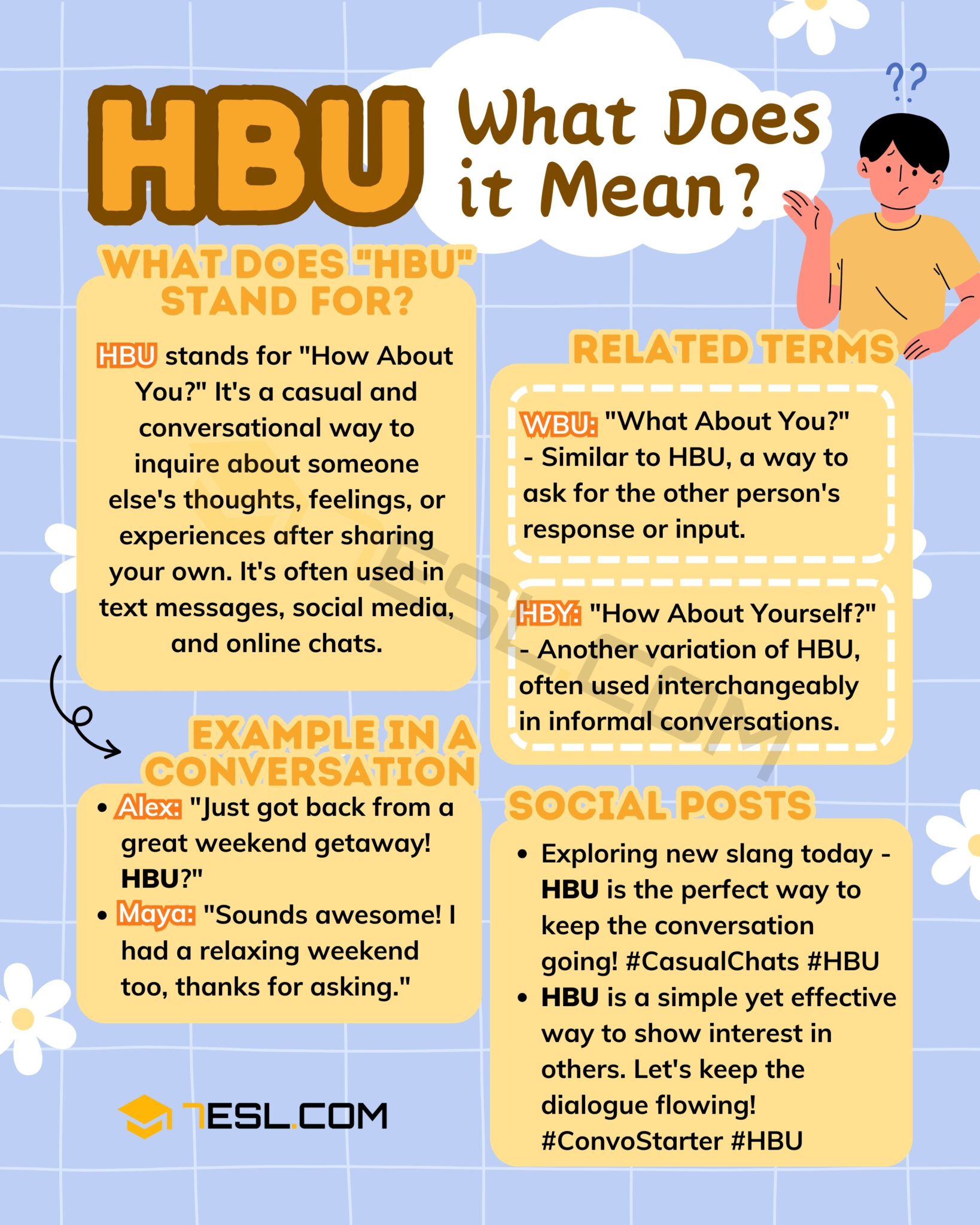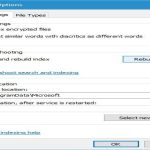HBU stands for "How about you?" It's a common acronym used primarily in informal written communication, especially texting, instant messaging, and social media. It serves as a quick follow-up question after sharing information about oneself to inquire about the other person.
Core Meaning and Function
The core function of HBU is to:
- Turn the Conversation Back: After answering a question or sharing something personal, HBU is used to ask the other person the same or a related question.
- Express Interest: It signals interest in the other person's situation, feelings, or opinions on the topic being discussed.
- Maintain Engagement: It keeps the conversational flow going by prompting a response from the other participant.
- Seek Reciprocity: It essentially asks "Now, your turn" in a very concise way.
Common Uses and Contexts
HBU is prevalent in scenarios like:

- Text Messaging: "Just got home. HBU?"
- Online Chat/Social Media Comments: "I voted for Option A. HBU?" or "Loving this new series. HBU, seen it yet?"
- Casual Email: While less formal, it might appear in friendly emails between colleagues or acquaintances.
How to Respond to HBU
Respond naturally based on the context of the question preceding the HBU:
- Answer the implied "how about you?" question directly. ("Pretty tired, had a long day.")
- Acknowledge and reciprocate if appropriate. ("Nah, haven't seen it. HBU? Did you like the ending?")
Variations
While HBU is the most common form, you may also encounter:
- HBY: Less common, but means the same thing (How 'Bout You?).
- WBU: Stands for "What about you?". This is essentially interchangeable with HBU in most casual contexts.
Key Considerations
- Informality: HBU is strictly informal. Never use it in formal writing, academic papers, professional reports, or official communications.
- Context is Crucial: Its meaning always depends on the preceding statement or question. It doesn't stand alone meaningfully.












